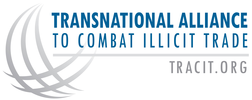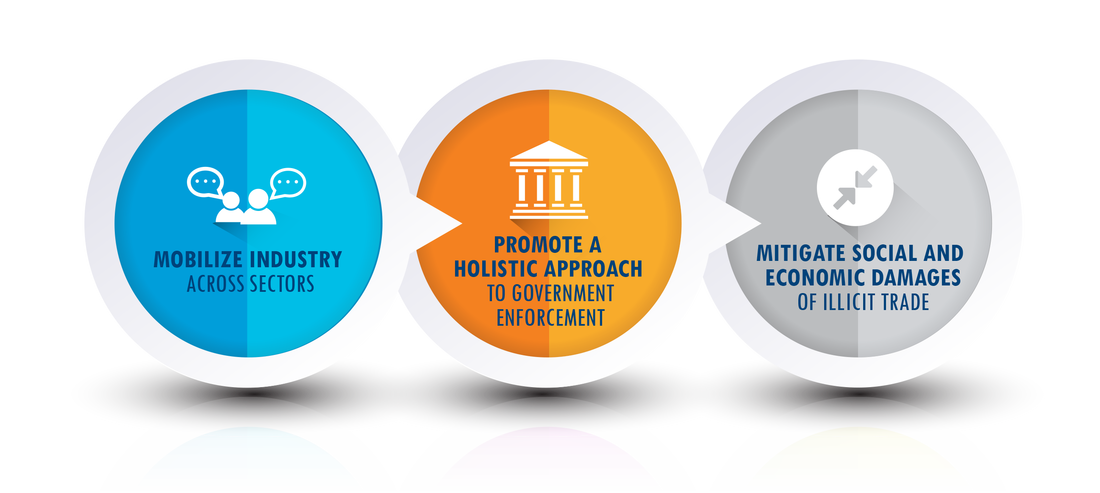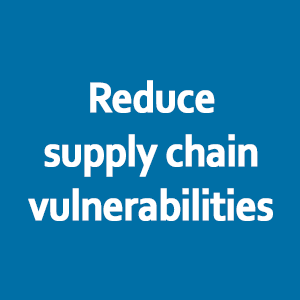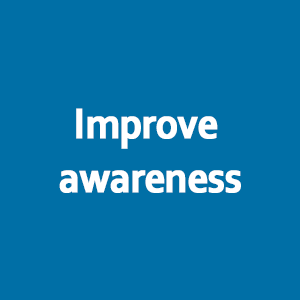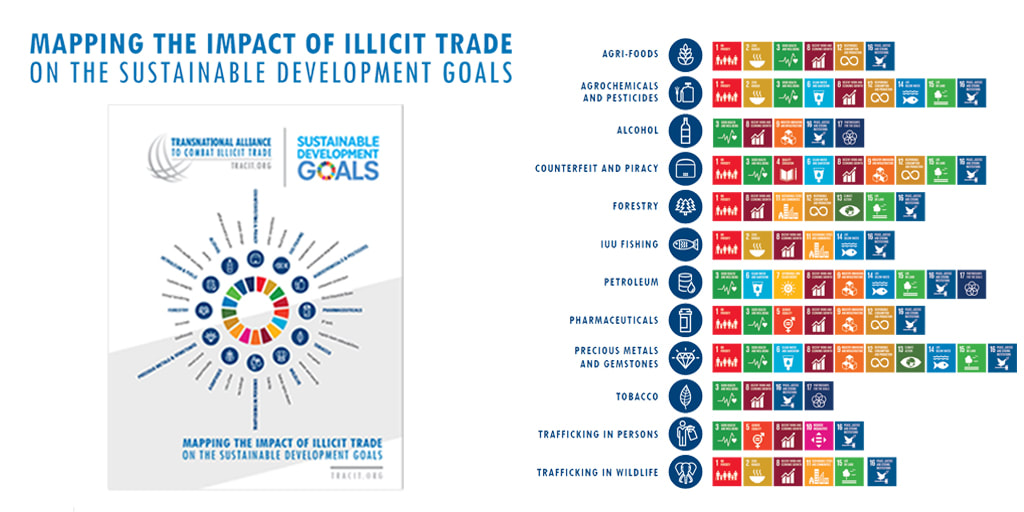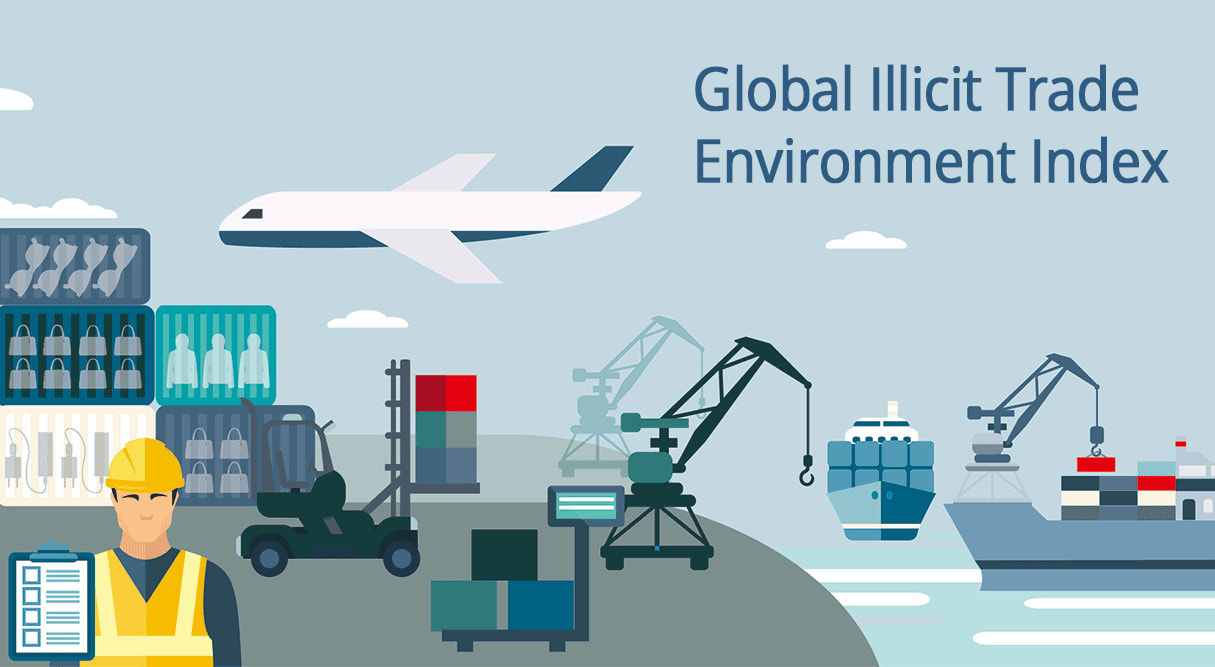Our objectivesTRACIT’s principal objective is to help shape the regulatory response to illicit trade so as to reduce and ultimately eliminate illicit trade. The organization leverages the political momentum against the social and economic consequences of illicit trade to:
Our work programOperationally, TRACIT's work plan aims to:
This work will be conducted through meetings, roundtables and summits; research reports; information and mitigation tactics sharing; developing and advocating policy recommendations; and building partnerships with key NGOs, IGOs, business and sectoral trade associations and other entities. Our two track approach
Pressing for a more holistic, systemic approach
TRACIT is pressing for more effective cross-sectoral coordination in the intergovernmental organization (IGO) community by promoting systemic approaches, interconnected strategies and shared resources against illicit trade. A holistic approach is warranted, not just because of the varieties of illicit trade but, even more importantly, because of its interlinkages with major global risks such as corruption (both a driver and consequence of illicit trade), terrorism (which is partly fueled by profits from illicit trade), fragile states (massive illicit trade often being their cause and nearly always an important consequence) or economic disparities (which contribute to and are exacerbated by illicit trade).
A systemic approach to addressing the problem requires the engagement of all concerned parties, namely the private sector, governments and civil society, all of which have a stake in the elimination of this phenomenon that harms business, society and state sovereignty. All also have key roles to play in developing and enforcing regulatory frameworks, monitoring supply chains and eliminating illicit trade components, and raising social awareness. Improving guidance to national governments
TRACIT contributes industry expertise, know-how and best practices to strengthen national government enforcement mechanisms and close local governance gaps that facilitate illicit trade. Many of the recommendations adopted by IGOs and conveyed to national governments are similar in nature and include common recommendations in terms of links between illicit trade, organized crime and corruption, the need for strengthened “know your customers” procedures, the establishment of national inter-ministerial task forces/ cross-cutting departments and the use of intelligence-driven/proactive investigations.
Reducing supply chain vulnerabilities
TRACIT works toward better control of supply chains and improved exchange information and mitigation tactics in and across key industry sectors exploited by illicit trading. This includes promoting the prevention and protection of the supply chain through the adoption of increased and better due diligence and ‘know your customer’ (KYC) procedures; promoting stronger legislation and regulation; addressing offline and online supply chain weaknesses; improving controls in free trade zones; and raising public awareness.
|
Vertical Divider
|
Criminal networks are not only expanding their operations, but they are also diversifying their activities, resulting in a convergence of transnational threats that has evolved to become more complex, volatile, and destabilizing. Illegal trade in wildlife and wildlife products often involves organized criminal groups with large transnational networks, resources and access to information and institutions throughout the supply and demand chains. For these groups, illegal trade in wildlife and wildlife products is one business opportunity amongst other forms of illicit trade. |
|
Transnational Alliance to Combat Illicit Trade (TRACIT) is an independent, non-governmental, not-for-profit organisation under US tax code 501(c)(6).
© COPYRIGHT 2024. ALL RIGHTS RESERVED. |
Follow us
|
